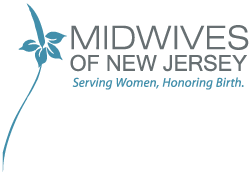Protecting Your Perineum
You are likely SUPER interested in having a perineum that stretches and springs back rather than one that does not stretch and then tears (or stretches so slowly that your provider is tempted to perform an episiotomy). Here are a few tips for a “springy” vagina!
Protecting Your Perineum Before Labor
Consume plenty of healthy fats
Omega 3 fatty acids are essential, polyunsaturated fatty acids that are vitally important during pregnancy. Omega 3’s are critical building blocks in baby’s neurodevelopment. They may also play a role in preventing perinatal depression. One of the omega-3 fatty acids is docosahexaenoic acid (DHA). A large part of the structure of skin is the membrane around each cell. DHA is one of the nutrients responsible for the health of cell membranes. Most pregnant women supplement with DHA but remember that food sources are always a more bioavailable source of key nutrients.
Sources of healthy fats include:
- Fish and other seafood (especially cold-water fatty fish, such as salmon, mackerel, tuna, herring, and sardines)
- Nuts and seeds (such as flaxseed, chia seeds, and walnuts)
- Fats from organic, free-range, grass fed and wild caught meats, poultry and fish
Vitamin C – used in the production of collagen.
The dermis layer of skin is held together by a protein called collagen. This layer gives skin flexibility and strength.
Great sources of vitamin C include:
- Citrus fruits
- Papaya
- Red bell peppers
- Brussel sprouts
- Strawberries
- Broccoli
Cysteine – found in beta-keratin, the main protein in nails, skin, and hair.
Cysteine is important in the creation of collagen. It affects skin elasticity and texture.
Sources of Cysteine include:
- Animal products such as meats, poultry, eggs, cottage cheese, and yogurt
- Plant sources include garlic, onions, red bell peppers, oats, Brussel sprouts and wheat germ
Gamma-Linolenic Acid (GLA) has been shown to improve skin elasticity.
Vegetable oils such as evening primrose oil (EPO), blackcurrant seed oil, borage seed oil, and hemp seed oil. GLA is also found in varying amounts in edible hemp seeds, oats, barley, and spirulina.
Other nutrients that improve the quality of your skin and tissues.
These include Silica, Selenium and Vitamin E.
Perineal massage has been shown to improve perineal outcomes for first-time Moms.
Try to do perineal massage a couple of days a week.
Protecting Your Perineum During the Birth
Deliver your baby in upright positions.
Upright positions include: standing, hands and knees, kneeling, squatting, or sitting on a birth stool. These positions decrease the risk of needing an episiotomy or forceps/vacuum assisted birth or having abnormal fetal heart rate patterns that can necessitate a rushed (and potentially damaging) delivery.
Use of warm water
Ask your provider to apply warm compresses to your perineum or deliver in a tub of warm water. Here is a post with more information about waterbirth.
Bring your knees closer together as the baby starts to crown.
This gives the perineal tissue more “give” than when your knees are as far out and back as they can go.
Follow your instincts.
Push the baby out when you have a strong urge and follow your instincts as far as how long to push in each contraction and in what position. Try to stop pushing when you feel burning unless the Midwife tells you otherwise. Pushing with an epidural sometimes requires more guidance to get the rhythm going but many women can still push on their hands and knees or holding on to the squat bar.
Slow and control the delivery of the baby’s head over the perineum.
Stop pushing and take a couple of breaths when you feel burning unless the Midwife tells you otherwise.
Ask your Midwife to put pressure on the baby’s head to keep it flexed until it fully emerges.
Allowing the head to extend before it is fully born requires the perineum to stretch even more than necessary. Women sometimes instinctively reach down to push the head away from the area around the clitoris which accomplishes the same thing.
After the baby’s head delivers, wait until the next contraction to deliver the shoulders.
When the shoulders have time to rotate, they put less stress on the perineal tissues.
Caring for Your Perineum After the Birth
Frozen witch hazels pads are very comforting.
Whether or not you have stitches, your bottom with likely be swollen or uncomfortable. Try our Perineal Bliss Kit from The Essential Market to make “deluxe” witchsicle pads for even more comfort.
After a day or two start taking an herbal sitz bath.
The warm water will cleanse and bring circulation to your bottom. Put on a frozen witch hazel pad after the sitz bath to decrease inflammation.
Avoid sitting upright on your bottom for long periods of time.
This will improve circulation and allow the swelling to diminish. And stay still. When you are moving a lot, the perineum gets more swollen and often more painful. Lay down, mostly on your sides to rest/sleep after you have completed the bare necessities-eating, feeding and bathing.
Do Not Look!
It takes a while for things to heal into your new Mommy crotch and even the Midwives are amazed how much things change in the 6 weeks after the birth.
Return slowly to intimacy with your partner.
Even when the outside looks healed there is often still healing happening inside that can make lovemaking uncomfortable initially. The hormonal environment of the vagina while breastfeeding causes dryness. Try a lubricant, glass of wine and plenty of foreplay to have a more pleasurable experience. Come see your Midwife if you are still uncomfortable with intercourse at 3 months postpartum.







 COVID-19 Has a Formidable Foe: Vitamin D
COVID-19 Has a Formidable Foe: Vitamin D
